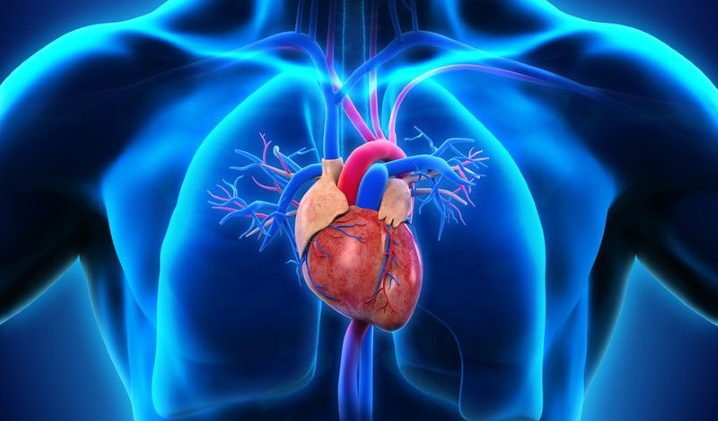
Decoding Cardiac Symptoms: When to Worry and When to Relax
Understanding the symptoms of heart problems can be overwhelming. With so much information available, it’s important to distinguish between symptoms that warrant immediate medical attention and those that may not be as concerning. This comprehensive guide aims to help you navigate through common cardiac symptoms and understand when it’s critical to seek help.
Common Cardiac Symptoms
Cardiac symptoms can vary widely and may present differently in men and women. Here are some of the most common symptoms that could indicate a heart issue:
- Chest Pain or Discomfort: This is one of the most recognized symptoms of heart problems. It can feel like pressure, squeezing, fullness, or pain in the center or left side of the chest. It may also radiate to the shoulders, neck, arms, back, teeth, or jaw.
- Shortness of Breath: This symptom can occur during rest or physical activity. It can be a sign of various heart conditions, especially if it comes on suddenly or is accompanied by other symptoms.
- Palpitations: Many people experience a racing or fluttering heartbeat. While palpitations are often harmless, they can sometimes indicate an underlying heart issue, especially if they are frequent or associated with other symptoms.
- Dizziness or Lightheadedness: Feeling faint or lightheaded can be a sign of a cardiac issue. It is particularly concerning if it occurs with exertion or is accompanied by chest pain.
- Fatigue: Unexplained fatigue, especially if it is new or unusual for you, could be a sign of heart disease. It is more common in women and may be accompanied by other symptoms.
When to Seek Medical Attention
While some symptoms may be benign, certain signs should prompt immediate medical attention. Here’s a quick guide:
- Chest Pain: Call emergency services if you experience chest pain that lasts more than a few minutes or goes away and comes back.
- Severe Shortness of Breath: If you find it difficult to breathe, especially if it is sudden, seek emergency care.
- Fainting: If you faint or feel like you might faint, especially with other symptoms like chest pain or shortness of breath, get medical help.
- Rapid or Irregular Heartbeat: If you experience a rapid or irregular heartbeat that lasts for more than a few minutes, consult a healthcare professional.
Understanding Heart Attack Symptoms
Heart attack symptoms can vary significantly. While chest pain is a common symptom, it’s important to recognize that heart attacks can also present with atypical symptoms, especially in women. These may include:
- Unusual tiredness
- Back or jaw pain
- Nausea or vomiting
- Cold sweat
Recognizing Stroke Symptoms
Strokes are also related to heart health, and recognizing the symptoms is crucial. Use the acronym FAST to remember the warning signs:
- F: Face drooping
- A: Arm weakness
- S: Speech difficulties
- T: Time to call emergency services
Risk Factors for Heart Disease
Understanding your risk factors can help you take preventive measures. Common risk factors include:
- Age: Risk increases with age.
- Family History: A family history of heart disease can increase your risk.
- High Blood Pressure: This condition can contribute to heart disease.
- High Cholesterol: Elevated levels can lead to plaque buildup in arteries.
- Smoking: Tobacco use significantly increases the risk of heart disease.
- Diabetes: This condition can damage blood vessels and nerves that control your heart.
- Obesity: Excess weight can lead to various health issues, including heart disease.
- Lack of Physical Activity: A sedentary lifestyle is a significant risk factor.
How to Manage Heart Health
Maintaining heart health is crucial for preventing cardiac symptoms and conditions. Here are some ways to manage your heart health effectively:
- Regular Check-ups: Regular visits to your healthcare provider can help monitor your heart health and catch any issues early.
- Healthy Diet: Incorporate fruits, vegetables, whole grains, and lean proteins into your diet. Limit saturated fats, trans fats, and sugars.
- Regular Exercise: Aim for at least 150 minutes of moderate aerobic activity weekly.
- Avoid Smoking: Quitting smoking can significantly reduce your risk of heart disease.
- Manage Stress: Engage in activities that reduce stress, such as yoga, meditation, or deep breathing exercises.
Conclusion
Decoding cardiac symptoms is essential for maintaining your heart health. Knowing when to seek medical attention can save your life. Always listen to your body and consult healthcare professionals if you have any concerns about your heart health. Taking proactive steps towards a healthier lifestyle can significantly reduce your risk of heart disease.
Disclaimer: This blog post is for informational purposes only and should not be considered medical advice. Always consult with a healthcare professional for medical concerns or questions.
Disclaimer: This article is for educational purposes only and does not constitute medical advice. Always consult a qualified healthcare professional.
